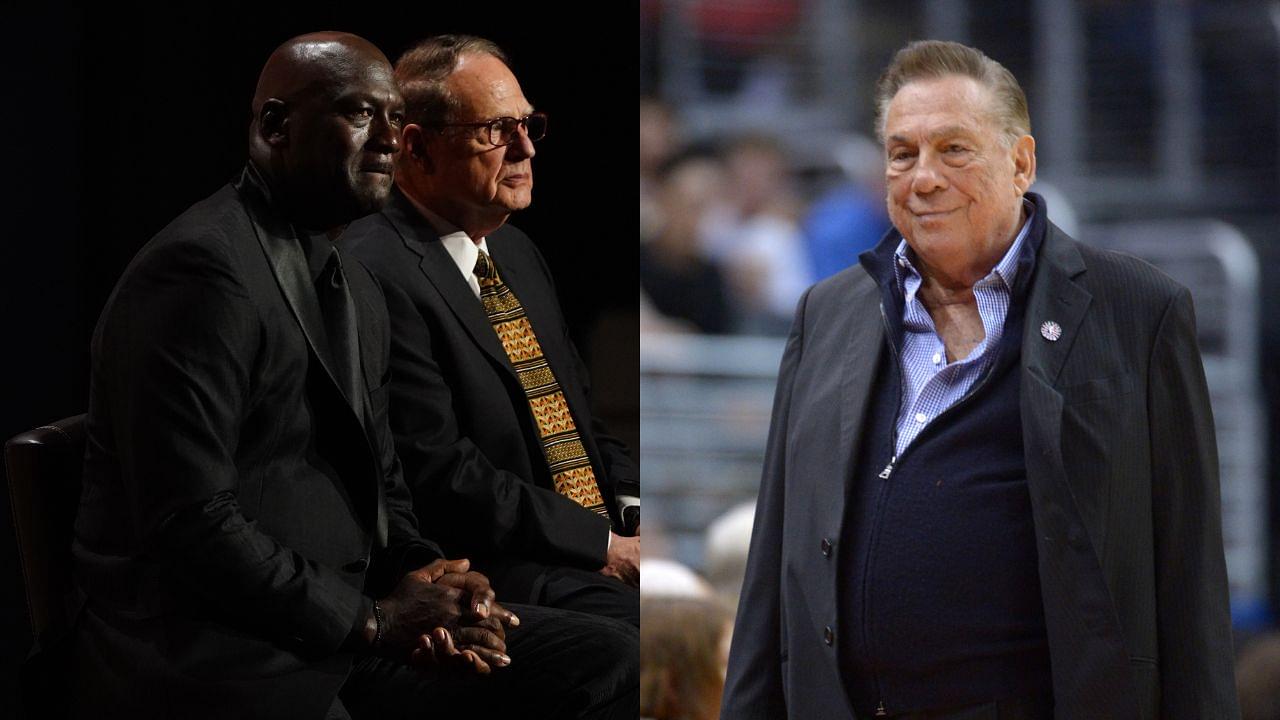In the first 3 years of his career, Michael Jordan failed to get the Chicago Bulls past the 1st round of the NBA Playoffs. There were growing beliefs that his selfish game would never get them close to winning a championship. During this time, the then-owner of the Clippers, Donald Sterling, was looking to make his team of some significance against Magic Johnson’s Lakers. And according to The Jordan Rules, despite all the talk, Sterling was looking at Mike.
Advertisement
Until Phil Jackson arrived in Chicago, Jordan looked pretty motivated just to keep showing off his exceptional individual skills, without caring much about his team. It would change in the latter part of the 90s as Phil became the Head Coach of the Bulls in 1989.
Chicago Bulls were making plans to trade Michael Jordan in 1988 based on rumors
The Bulls owner, Jerry Reinsdorf, and General Manager Jerry Krause were fully convinced that they weren’t going anywhere with Michael Jordan after their elimination in the second round at the hands of Isiah Thomas and Co. in 1988.
Jordan’s selfish game was rumored to be the reason behind it. Sterling, after trying and failing to get Pistons’ Isiah Thomas, thought only Jordan could match the popularity of the superstar (Magic Johnson) of their across-the-hall rivals. He didn’t care much about winning championships.
“The Clippers’ owner, Don Sterling, desperately sought a headline star to compete with the crosstown Lakers’ Magic Johnson. One he’d tried to acquire was wearing Bulls jersey number 23,” according to an excerpt in The Jordan Rules.
“Sterling had called Reinsdorf during the 1987–88 season. The Bulls were about to be eliminated by the Pistons four games to one after losing nine of ten playoff games the previous three seasons with Jordan. It was already a popular theory that the Bulls would never win a title because Jordan’s style of one-on-one play eliminated the other players as contributors.”
If it were up to Krause, the Bulls would’ve moved on from ‘His Airness’ for two of the first 6 picks of the 1988 Draft. Thankfully he couldn’t orchestrate it because Reinsdorf came to develop a feeling that Jordan was untradeable.
That would be the best decision any owner would ever make.
With Phil, Jordan delivered within 2 years
Phil Jackson took over as the HC in Chicago in 1989 along with his assistant, Tex Winter, who was the architect of the triangle offense. They didn’t impress Jordan much because he was used to having the ball in his hands, and the triangle offense instead promoted a team game.
“So many times Tex would yell at me, ‘Move the ball, move the ball, ‘there’s no I in team.’ Well, there’s an ‘I’ in ‘win’,” Jordan explained in The Last Dance.
It wouldn’t work for them in the first year (1990 Playoffs) and they’d fall against the Pistons once more, this time though, in the Conference Finals. However, in the next 8 years, they would win 6 championships under Phil, and Jordan would win all six Finals MVPs.
So, Phil and the triangle proved to be a win-win for everyone involved.







